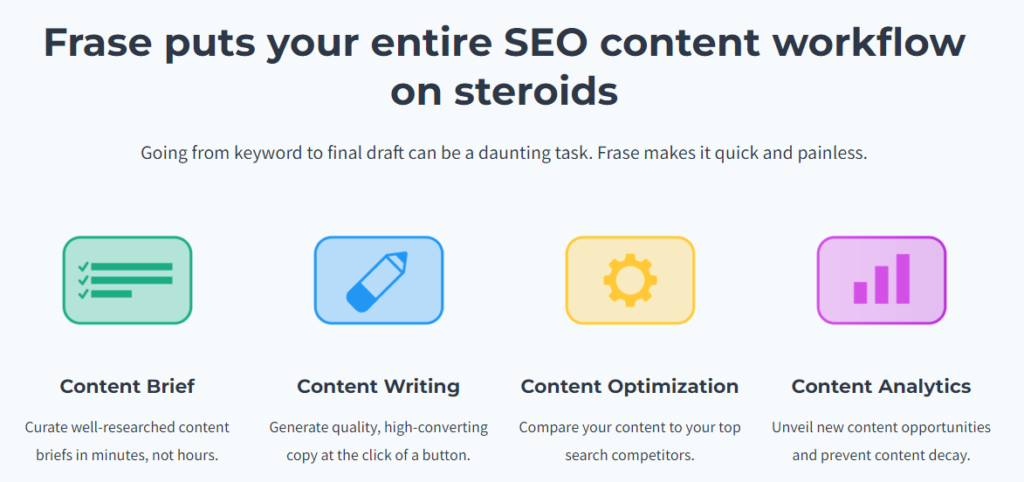What is a DSA lead and how does it work?
Are you tired of spending hours creating and optimizing search ads, only to see minimal results? Look no further than DSA leads. With the power of machine learning and dynamic matching, DSA leads can revolutionize your digital marketing strategy and drive targeted traffic to your website.
Keep reading to learn what DSA leads are, how they work, and why they’re a game-changer for businesses of all sizes and industries.
Discover the power of DSA leads in driving targeted traffic to your website. This comprehensive guide explains what DSA leads are, how they work, and why they’re essential for businesses of all sizes and industries.
Learn how to set up and optimize DSA campaigns, avoid common mistakes, and explore the future of DSA technology. Read now to take your digital marketing strategy to the next level.
- What are DSA leads?
- How DSA Leads differ from traditional search ads
- Benefits of using DSA leads
- How does DSA work?
- The process of matching queries to landing pages
- Best practices for creating DSA ads
- Case studies and benefits of DSA for businesses
- How DSA can benefit businesses of different sizes and industries
- Common mistakes to avoid when using DSA
- Future of DSA leads
- Conclusion
- FAQs:
What are DSA leads?
Dynamic Search Ads (DSA) leads are a type of online advertising format that uses machine learning technology to automatically match your website content to relevant search queries. Rather than choosing specific keywords to target, DSA allows search engines to dynamically generate headlines and landing pages based on a user’s search intent.

How DSA Leads differ from traditional search ads
Traditional search ads require businesses to choose specific keywords and create individual ads for each keyword. With DSA, the process is automated, making it easier to create ads and target a broader range of search terms. Additionally, DSA ads can help fill gaps in your keyword strategy and capture search queries that you may not have thought to target.
Benefits of using DSA leads
There are several benefits to using DSA leads, including:
- Increased efficiency: DSA allows you to create ads more quickly and easily than traditional search ads, freeing up time for other marketing initiatives.
- Improved targeting: DSA ads are dynamically generated based on a user’s search query, making them more relevant and targeted to the user’s intent.
- Broader reach: DSA ads can help you target a broader range of search queries, including long-tail keywords that may be more difficult to target with traditional search ads.
- Improved ad relevance: DSA ads are automatically generated based on your website content, ensuring that they are relevant to the user’s search query.

How does DSA work?
DSA uses machine learning technology to match search queries to relevant landing pages on your website. This technology analyzes your website content to understand what your business offers and matches it to search queries that are likely to result in a conversion.
The process of matching queries to landing pages
When a user enters a search query, the search engine analyzes the query and identifies the most relevant landing page on your website. The search engine then generates a headline and ad copy based on the query and the content of the landing page. The user is then directed to the landing page, where they can learn more about your business and complete a conversion.
Email Marketing Automation dedicated to WordPress, and you!
The importance of a well-structured website for DSA
To ensure that DSA is effective, it’s essential to have a well-structured website with clear content and a logical hierarchy. This helps the search engine understand what your business offers and match it to relevant search queries. Additionally, having high-quality landing pages that are optimized for conversion can help improve the effectiveness of your DSA campaigns.
Setting up and optimizing DSA campaigns
How to set up a DSA campaign
To set up a DSA campaign, follow these steps:
- Create a new campaign in your Google Ads account.
- Choose “Search” as your campaign type.
- Select “Dynamic Search Ads” as your campaign subtype.
- Choose the website that you want to use for your DSA campaign.
- Set your budget, bidding strategy, and targeting options.
- Create ad groups for your DSA ads.
- Write ad copy that is relevant to your website content.
Drag & Drop Sales Funnel Builder for WordPress
Best practices for creating DSA ads
When creating DSA ads, keep the following best practices in mind:
- Use clear, concise language in your ad copy.
- Include a strong call-to-action that encourages users to take action.
- Use high-quality images that are relevant to your business.
- Include relevant keywords in your ad copy to improve ad relevance.
- Use ad extensions to provide additional information about your business.
How to monitor and optimize DSA campaigns
To ensure that your DSA campaigns are effective, it’s essential to monitor and optimize them regularly.
Here are some tips for optimizing your DSA and add negative keywords to exclude irrelevant traffic.
- Monitor your ad performance and adjust your bids based on performance data.
- Test different ad copy and landing pages to see which combinations drive the most conversions.
- Analyze your website traffic to identify areas for improvement and make necessary changes to improve your website’s performance.
- Use conversion tracking to measure the effectiveness of your DSA campaigns and make data-driven decisions to optimize your campaigns.
Case studies and benefits of DSA for businesses
Here are some examples of successful DSA campaigns:
A retail clothing company used DSA to target customers searching for specific types of clothing. By creating ad groups based on product categories and using relevant landing pages, the company was able to increase click-through rates and drive more conversions.
A home services company used DSA to target customers searching for specific services in their local area. By using location-based targeting and relevant landing pages, the company was able to increase phone calls and form submissions from interested customers.
How DSA can benefit businesses of different sizes and industries
DSA leads can benefit businesses of all sizes and industries.
Here are some examples:
- Small businesses can use DSA to drive more traffic to their website and generate leads without having to create and manage complex campaigns.
- E-commerce businesses can use DSA to target specific product categories and drive more sales by matching user queries with relevant landing pages.
- Service-based businesses can use DSA to target customers searching for specific services in their local area and generate more leads.
- Large enterprises can use DSA to improve the efficiency of their search campaigns by automating the process of creating and managing ad groups.
Common mistakes to avoid when using DSA
Misconceptions about DSA
There are some common misconceptions about DSA that can lead to ineffective campaigns.
Here are a few to be aware of:
- DSA is a replacement for traditional search ads: While DSA can be a powerful complement to traditional search ads, it is not a replacement. It is important to use both strategies together for maximum impact.
- DSA is only useful for large businesses: DSA can benefit businesses of all sizes, not just large enterprises. Small businesses can use DSA to drive more traffic and generate leads without having to create and manage complex campaigns.
- DSA doesn’t require any optimization: While DSA campaigns can be automated, they still require optimization and monitoring to ensure they are performing effectively.
Common pitfalls to avoid when using DSA
Here are some common pitfalls to avoid when using DSA:
- Neglecting to set negative keywords: Without setting negative keywords, DSA campaigns can generate irrelevant traffic, which can hurt performance and waste advertising spend.
- Poor website structure: DSA relies heavily on a well-structured website with clear landing pages. If your website is not structured well, your DSA campaigns will suffer.
- Not monitoring performance: DSA campaigns need to be monitored closely to ensure they are performing effectively. Without monitoring, you may miss opportunities to optimize your campaigns and improve performance.
Future of DSA leads
As with all digital marketing strategies, DSA technology is constantly evolving. Here are some potential advancements and changes to look out for:
Advancements in DSA technology
As machine learning and AI continue to develop, we can expect DSA technology to become even more sophisticated. In the future, DSA may be able to analyze user behavior in real-time and adjust ad targeting accordingly. Additionally, DSA may become even more personalized and tailored to individual users.
Using DSA in conjunction with other digital marketing strategies
DSA can be used in conjunction with other digital marketing strategies to create a comprehensive and effective marketing plan. For example, DSA can be used alongside traditional search ads, social media advertising, and content marketing to reach customers at every stage of the marketing funnel.

Conclusion
In conclusion, DSA leads can be a powerful tool for businesses looking to generate more leads and drive more traffic to their website. By understanding how DSA works, how to set up campaigns effectively, and how to avoid common pitfalls, businesses can take full advantage of this powerful marketing strategy. As technology continues to evolve, we can expect DSA to become even more effective and personalized, making it an even more important part of any comprehensive digital marketing plan.
FAQs:
How is DSA different from traditional search ads?
DSA (Dynamic Search Ads) use machine learning to automatically target relevant search queries and dynamically generate ad copy based on the content of a website. Traditional search ads, on the other hand, require advertisers to manually create ad copy and select relevant keywords.
How can I set up a DSA campaign?
To set up a DSA campaign, first, create a campaign in Google Ads and select “Dynamic Search Ads” as the campaign type. Next, select the website you want to target, set a bid, and create ad groups. Finally, write ad copy that is relevant to your website and the products or services you offer.
What are some common mistakes to avoid when using DSA?
One common mistake to avoid is failing to properly structure your website. DSA relies heavily on the content of your website, so it’s important to have a well-structured site with clear categories and subcategories. Additionally, it’s important to monitor and optimize your campaigns regularly to avoid overspending on poorly-performing ads.
How can DSA benefit businesses of different sizes and industries?
DSA can benefit businesses of all sizes and industries by helping to generate more leads and drive more traffic to their website. Small businesses can benefit from DSA by increasing their online visibility and reaching potential customers they may not have been able to reach with traditional search ads. Larger businesses can benefit by automating their ad targeting and generating ads at scale, which can save time and resources.
How does DSA fit into a comprehensive digital marketing plan?
DSA can be used in conjunction with other digital marketing strategies, such as traditional search ads, social media advertising, and content marketing, to create a comprehensive and effective marketing plan. By using DSA alongside other strategies, businesses can reach potential customers at every stage of the marketing funnel and increase their chances of converting leads into customers.









